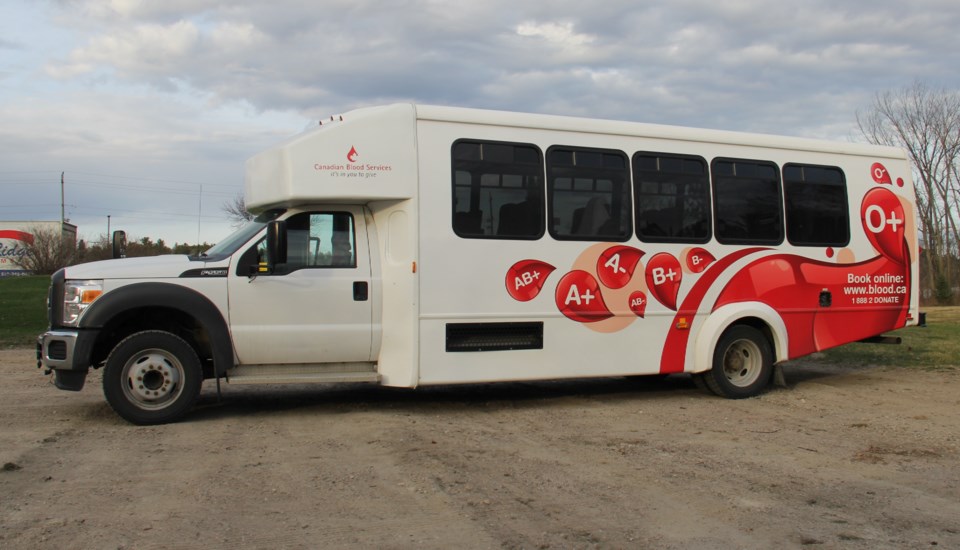To the editor:
This is a serious concern that we have and it’s a bad idea.
The Canadian Blood Services closed the North Bay Aaea office a couple of years ago so if someone wants to donate blood here they are told to travel to Huntsville or Sudbury, therefore, I’m told that they have stopped donating.
I and 50-60 other family members across this region are recipients of getting plasma blood in our treatment of immunoglobulin and we want to make sure the product that we put in our bodies is safe.
There are reports that Canadian Blood Services (CBS) may be negotiating a secret deal with a global plasma corporation to buy privatized paid plasma collected in Canada. This move would undermine public trust in CBS, threaten the voluntary blood and plasma donor network, and put patient safety at risk.
For-profit plasma corporations treat human plasma as a commodity to buy and sell. These financially motivated corporations usually set up collection businesses in poorer neighbourhoods to exploit marginalized communities and then make a huge profit by selling that plasma on the global market to the highest bidder. This exploitation undermines the safety and sustainability of our voluntary blood and plasma collection system operated by CBS.
Our blood and plasma collection system was established following the tainted blood scandal in the 1980s where over 30,000 Canadians were infected with HIV and AIDS and Hepatitis C from contaminated blood products. The Krever Inquiry into Canada’s national blood supply, the International Federation of the Red Cross, and the World Health Organization Expert Consensus Statement have found that blood and blood products like plasma should be collected through voluntary, unpaid donations.
The deal being considered by CBS would expand and entrench the for-profit paid plasma business in Canada. It would undermine CBS’s network of voluntary collection sites where many CUPE members work. And it would increase the risk of transfusion-transmissible infections in our blood and plasma supply. CBS’s unpaid blood and plasma collection prioritize the checks and balances that minimize this risk.
CBS has been exploring this privatization deal behind closed doors with little transparency or accountability. CUPE and other stakeholders were excluded from a key consultation on plasma sufficiency early this year. Major decisions that put the safety of our future blood and plasma supply at risk must be made based on thorough, widespread, and transparent consultation processes. CUPE has written a letter to the Chair and Co-Chair of the CBS board advocating against plasma privatization.
Paying for blood is dangerous because:
It increases the risk to blood safety. The chances of blood-borne infections are higher among paid donors. When motivated by money, donors are unlikely to reveal reasons why they are unsuitable to donate blood.
It weakens voluntary blood donor programs, which jeopardizes the national blood supply. By undermining the principles of voluntary donation, some long-time donors start to lose motivation and stop giving, while others opt for payment from paid plasma clinics instead – all of which reduces the volume and regularity of donations to the national blood system.
Plasma for profit is wrong because:
- Private companies are driven by profits, not the well-being and safety of Canadians. They sell and export plasma to the highest bidder and have no duty to use it to save the lives of Canadians.
- Blood is a public resource. No one should be collecting, influencing the supply of, or profiting from it except our public system. But plasma is highly profitable. Multinational corporations buy Canadian plasma and mix it with foreign plasma to make pharmaceutical products, which are then sold back into Canada. Finished products can cost up to $7000 per treatment and more than $200,000 annually.
The federal and provincial governments need to ban payment for blood and plasma donation, ban privatization by disallowing private paid plasma clinics, and have a plan to achieve self-sufficiency of Canada’s blood and blood product supply.
Public solutions cost less, cover everyone, and deliver more.
Treating human plasma as something to buy and sell is wrong. Putting the safety of Canadians at risk by exploiting blood donors is wrong. Canadians deserve better.
We need to ask the federal and provincial governments to act now.
Take action to protect Canada’s voluntary and unpaid blood and plasma supply:
Send a letter to your MP to stop the secret plasma deal!
Watch this webinar by the Canadian Health Coalition called Paid plasma industry is threatening Canada’s blood supply
Read more about keeping our blood and plasma supply safe in this CUPE fact sheet
Henri Giroux
Powassan



